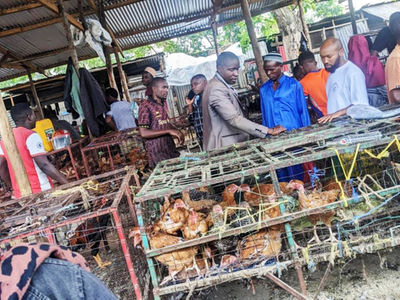This year, the United Nations Economic Commission for Africa (ECA) is set to mobilize stakeholders in Ethiopia, Ghana, Kenya, and Zimbabwe to improve urban living conditions through UN-Habitat’s Quality of Life Initiative.
As African cities grow rapidly, ensuring that urbanization leads to better living standards remains a pressing challenge. The Quality of Life Initiative equips local authorities with the data and insights they need to ensure that urban expansion benefits every resident.
Central to the Initiative is the Quality of Life Index, which gives local authorities a pulse-check of urban life across nine critical domains, including access to basic services, housing and economic opportunities.
What sets the Index apart is its adaptability. It combines global benchmarks from the Sustainable Development Goals (SDGs) with local priorities identified by city stakeholders, enabling each municipality to develop a bespoke index that reflects its unique context, values and priorities. This evidence-based approach enables local authorities to make targeted decisions and measure their precise impact.
A collaborative approach
At the request of participating countries, ECA will bring together diverse stakeholders, including policymakers, urban planners, national statistical office representatives and community leaders, in the coming months to discuss the core elements of a good quality of life and identify areas for improvement.
“Ethiopia, Ghana, Kenya, and Zimbabwe are at the forefront of Africa’s urban transformation,” said Ms. Atkeyelsh Persson, Chief of ECA’s Urbanization and Development Section. “Urban growth is inevitable, but the quality of life it delivers is not guaranteed. Metrics like GDP might tell us how an economy is performing, but it says nothing about whether people in cities have clean water, safe public spaces or reliable public transport.”
“Without real data on the human experience, decision-makers are left navigating urban development in the dark,” said Mr. Giuseppe Tesoriere, ECA’s focal point for the Quality of Life Initiative.
“But there’s a strong appetite for change. City leaders want better tools to understand what truly improves daily life — and how to make it happen. That’s where our Quality of Life Initiative comes in. We look forward to working with stakeholders in these four countries to explore urban policy proposals that put people first,” he added.
Data-driven decision-making
Despite a growing global focus on people-centered urban development, many African cities face major challenges, such as fragmented efforts, competing priorities and data gaps, that hinder effective decision-making.
The Quality of Life Index addresses these challenges by integrating with Africa’s expanding Voluntary Local Review (VLR) process — a city-led assessment that monitors progress on the SDGs and fosters multi-stakeholder collaboration.
The Index creates synergies with the VLR data to create an actionable tool that local authorities can use to gain a clearer picture of urban life and make data-driven improvements in the lives of city residents.
ECA works in close collaboration with the Quality of Life Initiative to scale up the Index in cities across Africa. The Quality of Life Initiative actively engages with the UN Regional Economic Commissions to mobilize the participation of cities and local governments globally, providing technical support and capacity-building to help them adopt and implement the Quality of Life Index as a tool for urban development and policymaking.
This work is part of a broader collaboration among UN Regional Economic Commissions together with the Quality of Life Initiative, which includes a forthcoming position paper on a joint commitment and testimony from the Regional Economic Commissions on Enhancing Quality of Life in Cities: A Unified Inter-Regional Perspective, led by the United Nations Economic and Social Commission for Western Asia (ESCWA).
The post ECA to mobilize Ethiopian, Ghanaian, Kenyan and Zimbabwean cities to join quality of life initiative appeared first on The Herald ghana.



